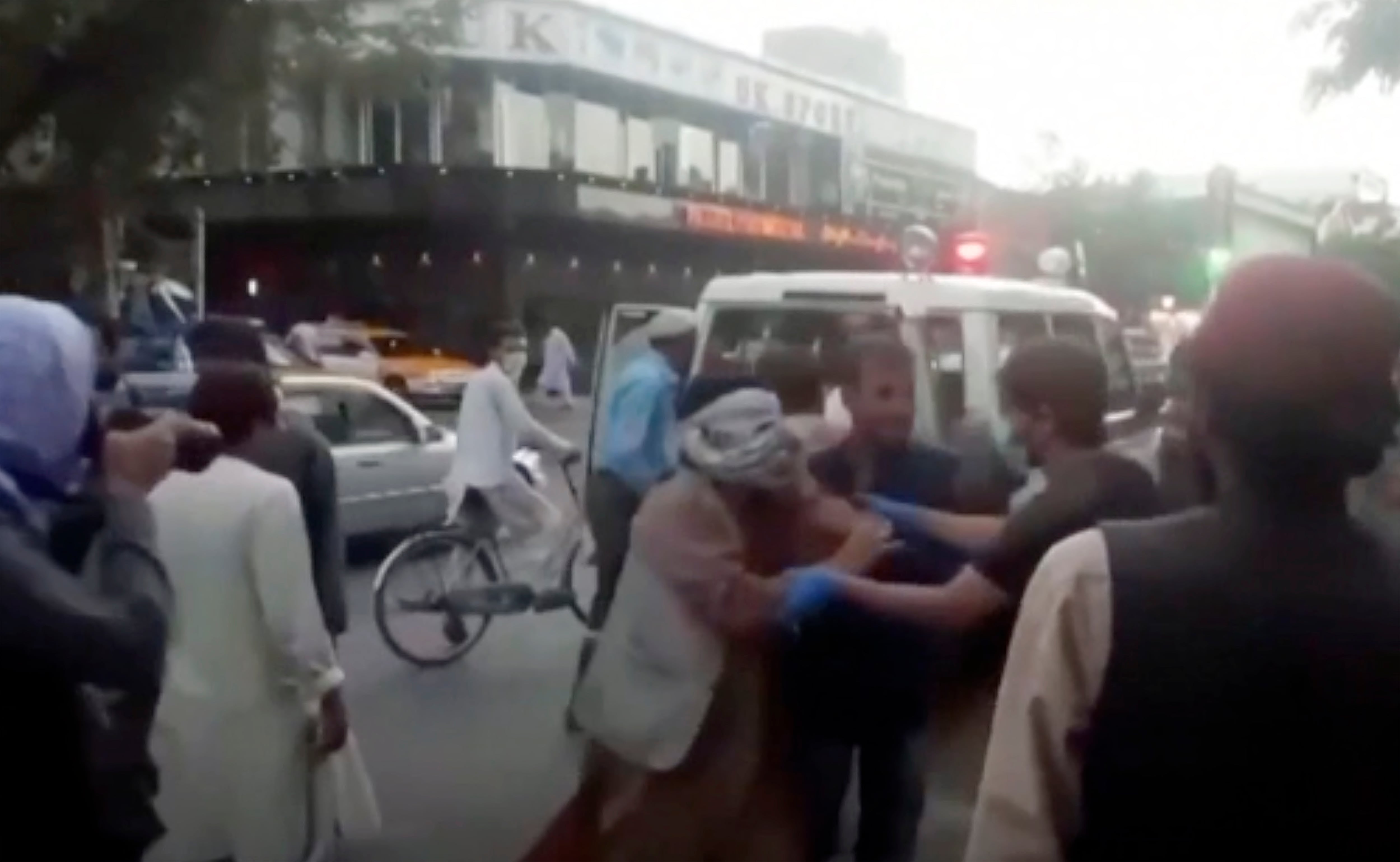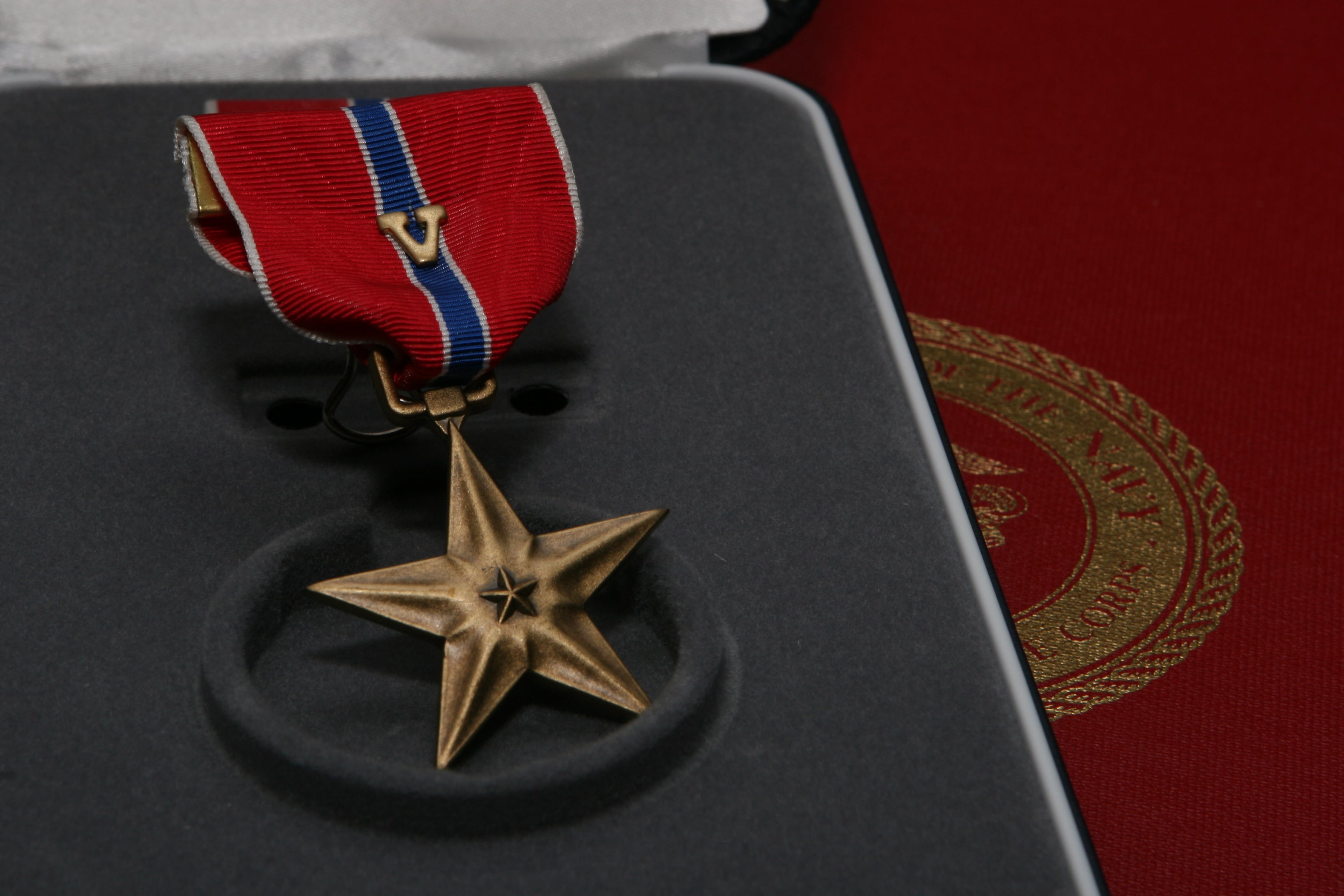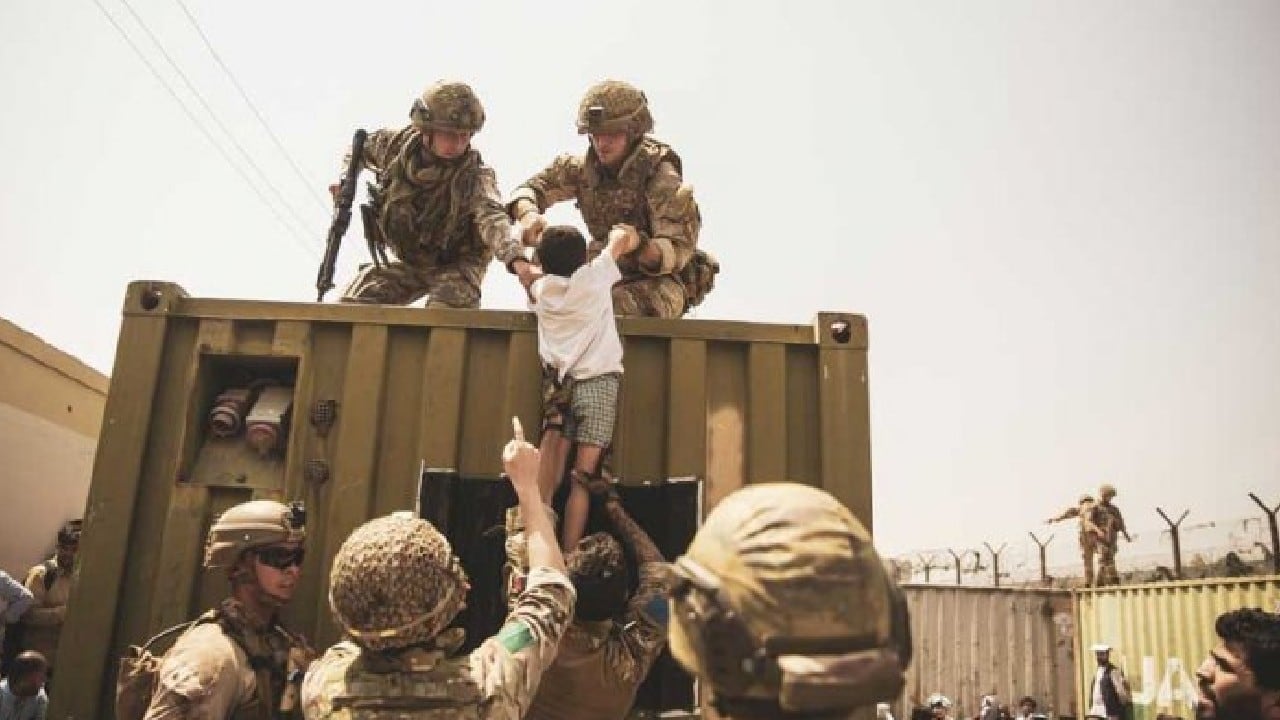As the days blurred past, with the U.S.’s August 2021 withdrawal deadline from Afghanistan fast approaching, Marine Cpl. Wyatt J. Wilson continued his task: screening evacuees flooding the area around the Abbey Gate of the Hamid Karzai International Airport in Kabul.
Wilson worked alongside 2,000 other Marines in the country at the time, part of Special Purpose Marine Air-Ground Task Force Crisis Response 21.2 during Operation Allies Refuge.
Kabul had fallen to Taliban control by Aug. 15, 2021. Another 3,000 U.S. troops, in addition to the Marines, were there to conduct the largest noncombatant evacuation in military history.
But Wilson, a team leader from Company G, 2nd Battalion, 1st Marine Regiment, plugged away at his screenings ― a calm amid constant risk of attack and the chaos already mounting.
RELATED

He and his team were part of an effort to keep surging masses of Afghans from overwhelming the airport and to screen and evacuate allies, both military and civilian, who had aided the United States over the past two decades of fighting.
A subsequent investigation would reveal that Wilson and his team had been put in a vulnerable position; military leaders knew that Abbey Gate was indefensible before he and his team were sent to stem the tide of the disarray turned mayhem that unfolded.
Then, on Aug. 26, 2021, one of two Islamic State-affiliated suicide bombers detonated a 20-pound explosive device only 10 meters from his position, which showered the immediate area with 5 mm ball bearings “and threw (Wilson) into the air as it sprayed shrapnel throughout his body,” according to the recently released Bronze Star Medal with “V” device for valor award citation.

In the explosion’s aftermath, Wilson looked around him and saw fellow Marines and civilians wounded.
His next moves would add his name to the list of valorous Marine combat actions, as first reported by Task & Purpose.
What Wilson couldn’t have known then was that the dual-pronged attack had killed 13 U.S. troops and as many as 170 Afghans.
Among the U.S. troops killed were 11 Marines, one Navy corpsman and one Army staff sergeant.
The Abbey Gate bombing would rank among one of the highest U.S. fatalities in a single incident or mission in Afghanistan, alongside 2011′s Extortion 17, which involved the shooting down of a CH-47D Chinook helicopter, killing 29 U.S. troops and eight Afghans, and 2005 Operation Red Wings, which killed 19 U.S. troops.
But the number killed in the Abbey Gate bombing could have been higher, if not for actions by Wilson and others on the scene in the devastating seconds and minutes that followed.
Despite his own “grievous wounds,” the corporal dragged a critically wounded Marine to safety. He passed off the Marine to another for medical care. Wilson then refused medical treatment for his own “life-threatening wounds.”
Those actions “undoubtedly saved the life of another Marine,” according to the citation, signed by Maj. Gen. P. J. Rock Jr., commander U.S. Marine Forces Central Command.
The corporal has since been promoted to sergeant.
Citing HIPPA, the Marine Corps would not answer questions as to where the shrapnel hit the Marine, if he was evacuated or recovered in Kabul or what his recovery time was.
Rock cited Wilson’s “bold actions, courage under fire, and total dedication to duty” that warranted the combat valor award.
More awards likely are in store for the Marines who served on the SPMAGTF and as part of the harrowing 2021 Afghanistan exit. Marine Corps Times reported in October 2021 that 29 Purple Hearts had been approved with another 12 pending for Marines wounded in action.
A report released in February showed that decisions to keep Abbey Gate open, authorized by Army Maj. Gen. Christopher Donahue, then-commander of the 82nd Airborne Division, put troops at that location in an untenable situation.
Donahue kept that specific gate open, in part, to aid British troops and officials in the country’s own evacuation efforts, according to the investigation.
Only the day before the bomb blast, on Aug. 25, 2021, a Marine with Echo Company, 2nd Battalion, 3rd Marine Regiment, had been pulled into the crowd by the muzzle of his weapon, an incident captured on video and later shared with a post-evacuation investigation.
Officials expressly showed that video to reporters in a February 2022 briefing to illustrate the need for the cluster of Marines at the gate for crowd control amid the sustained melee.
Investigators did not lay blame for decisions made at the time.
“Based on our investigation, at the tactical level, this was not preventable, and the leaders on the ground followed the proper measures,” said Army Brig. Gen. Lance Curtis, lead investigator, in the February briefing.
During every imminent threat warning, troops at the gates lowered profile, sought cover and ceased operations at the gate at times, Curtis said.
Work by Wilson and the thousands of other troops in Afghanistan during the withdrawal is credited with saving as many as 124,000 evacuees fleeing the Taliban takeover.
That figure includes more than 73,000 civilians and 6,000 U.S. citizens, said Marine Gen. Kenneth McKenzie Jr., then-commander of CENTCOM.
Todd South has written about crime, courts, government and the military for multiple publications since 2004 and was named a 2014 Pulitzer finalist for a co-written project on witness intimidation. Todd is a Marine veteran of the Iraq War.




